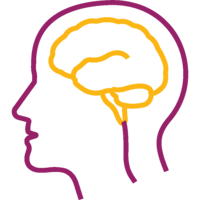
Saturday, 24 June, 2023
Let’s dive deep into the intricate world of congestive heart failure (CHF). Whether you're newly diagnosed or just curious, this guide is here to answer all your burning questions.
From symptoms to treatment, at what age you should see a cardiologist, at what age you should see a cardiologist, and everything in between, Kauvery Hospital, the best heart hospital in Bangalore, got you covered. So, sit back, relax, and let's explore the ins and outs of CHF together!
What is Congestive Heart Failure?
Congestive heart failure, often referred to simply as heart failure, occurs when your heart doesn't pump blood as well as it should.
Picture your heart as a pump working tirelessly to keep blood flowing throughout your body. But with CHF, that pump starts to falter, leading to a backup of blood and fluid in your lungs, abdomen, and other organs.
CHF is a condition where your heart struggles to pump blood effectively, leading to a buildup of fluid in your body. It's like a traffic jam on the highway of your cardiovascular system, causing congestion and discomfort.
Causes of Congestive Heart Failure
CHF can stem from various underlying conditions and lifestyle factors, including:
Coronary artery disease:
Blocked arteries restrict blood flow to the heart muscle.
High blood pressure:
Increased pressure forces the heart to work harder, weakening it over time.
Heart valve disease:
Malfunctioning valves can disrupt blood flow and strain the heart.
Cardiomyopathy:
Damage to the heart muscle impairs its ability to pump effectively.
Congenital heart defects:
Structural abnormalities present at birth can hinder proper heart function.
Others:
Diabetes, obesity, and other health issues can also contribute to CHF.
Stages of Congestive Heart Failure
CHF is typically classified into four stages based on the severity of symptoms and impairment of heart function. Let's break it down:
Stage A
Here the heart starts to develop the symptoms indicating risks of heart failure and is often referred to as the pre-heart attack stage.
You could be in this stage because you have a family history of heart failure or have a medical condition such as - diabetes, hypertension, metabolic syndrome, history of alcohol abuse, coronary artery disease, etc.
Stage B
This stage is where the systolic left ventricular dysfunction is diagnosed, even if you haven't shown any cardiac disease symptoms.
Stage C
In this stage, you have a heart failure diagnosis for having symptoms of the condition like shortness of breath, weakness in legs, unable to urinate, swollen ankles and legs, etc.
Stage D
This is the final stage when the symptoms do not get better with treatment.
Risk Factors For Heart Disease
High Blood Pressure:
Elevated blood pressure puts strain on the heart and blood vessels, increasing the risk of heart disease.
High Cholesterol:
Excess cholesterol can build up in the arteries, leading to blockages and increasing the risk of heart attacks and strokes.
Smoking:
Tobacco smoke damages blood vessels, raises blood pressure, and accelerates the formation of fatty deposits in the arteries.
Obesity:
Excess weight puts additional strain on the heart and increases the likelihood of developing conditions such as diabetes and high blood pressure.
Diabetes:
Diabetes can damage blood vessels and nerves, increasing the risk of heart disease and stroke.
Family History:
Having a close family member with heart disease increases the likelihood of developing heart problems oneself.
Physical Inactivity:
Lack of regular exercise can contribute to obesity, high blood pressure, and other risk factors for heart disease.
Unhealthy Diet:
Diets high in saturated fats, trans fats, sodium, and sugar can contribute to high cholesterol, high blood pressure, and obesity, increasing the risk of heart disease.
Excessive Alcohol Consumption:
Heavy drinking can raise blood pressure, contribute to obesity, and increase the risk of heart disease.
Stress:
Chronic stress can lead to unhealthy coping mechanisms such as overeating or smoking, which can contribute to heart disease.
Signs and Symptoms of Congestive Heart Failure
So, how do you know if you're dealing with CHF? Keep an eye out for these telltale signs and reach out to the best cardiologist in Bangalore within the golden hour of heart attack.
- Shortness of breath, especially during physical activity or when lying down
- Persistent coughing or wheezing
- Fatigue and weakness
- Swelling in the legs, ankles, or abdomen
- Rapid or irregular heartbeat
- Reduced ability to exercise
- Sudden weight gain due to fluid retention
Diagnostic Tests for Congestive Heart Failure
Echocardiogram:
This test uses sound waves to create images of the heart's structure and function, allowing doctors to assess the pumping action and detect abnormalities.
Electrocardiogram (ECG or EKG):
An ECG measures the heart's electrical activity, helping identify irregularities such as arrhythmias or abnormal heart rhythms.
MRI or CT Scan:
These imaging tests provide detailed images of the heart, allowing doctors to evaluate its size, shape, and function.
Blood Tests:
Blood tests measure levels of certain substances in the blood, such as BNP (B-type natriuretic peptide), which can indicate heart failure.
Prevention and Management Strategies
Now, let's talk about treatment. Managing CHF involves a combination of lifestyle changes, medications, and, in some cases, medical procedures. Here's what you can expect:
Healthy Lifestyle:
Adopting a healthy lifestyle is key to preventing heart failure. This includes maintaining a balanced diet, exercising regularly, managing stress, avoiding smoking, and limiting alcohol consumption.
Medications:
Medications such as ACE inhibitors, beta-blockers, diuretics, and aldosterone antagonists may be prescribed to manage symptoms and improve heart function.
Monitoring Fluid Intake:
Patients with congestive heart failure should monitor their fluid intake carefully and follow a low-sodium diet to prevent fluid retention and swelling.
Regular Medical Check-ups:
Regular check-ups with a healthcare provider are essential for monitoring heart function, adjusting medications, and addressing any changes in symptoms.
Lifestyle Modifications:
Making lifestyle modifications such as maintaining a healthy weight, managing underlying conditions like hypertension and diabetes, and avoiding excessive salt intake can help prevent and manage congestive heart failure.
Conclusion
Congestive heart failure is a serious condition that requires timely diagnosis and appropriate management. By understanding the diagnostic tests used to detect heart failure and adopting preventive strategies, individuals can reduce their risk and improve their quality of life.
Remember, early intervention and lifestyle modifications are key to managing congestive heart failure effectively. If you or a loved one experience symptoms of heart failure, don't hesitate to seek medical attention promptly.
With proper care and management, individuals with congestive heart failure can live fulfilling lives and reduce the risk of complications.
Key Takeaways
- Understanding Congestive Heart Failure: CHF occurs when the heart fails to pump blood effectively, leading to fluid buildup in the body. It's crucial to recognize the symptoms and stages of this condition.
- Stages of CHF: CHF progresses through four stages, from pre-symptomatic to severe symptoms. Knowing the stages can help with early intervention and management.
- Risk Factors for Heart Disease: High blood pressure, high cholesterol, smoking, obesity, diabetes, family history, physical inactivity, unhealthy diet, excessive alcohol consumption, and chronic stress are all significant risk factors for heart disease.
- Signs and Symptoms of CHF: Shortness of breath, persistent coughing, fatigue, swelling in the legs or abdomen, rapid or irregular heartbeat, and reduced exercise tolerance are common signs of CHF that require medical attention.
- Diagnostic Tests and Management Strategies: Diagnostic tests such as echocardiograms, ECGs, MRI or CT scans, and blood tests help diagnose CHF. Treatment involves lifestyle changes, medications, fluid monitoring, regular check-ups, and lifestyle modifications to prevent and manage congestive heart failure effectively. Early intervention and lifestyle adjustments are crucial for improving outcomes and reducing complications.
Author by
Senior Consultant - Interventional Cardiology
MBBS MRCP PhD (Cardiology) CCT AFESC
Kauvery Hospital - Electronic City


 Neurosciences
Neurosciences Bariatric Surgery
Bariatric Surgery